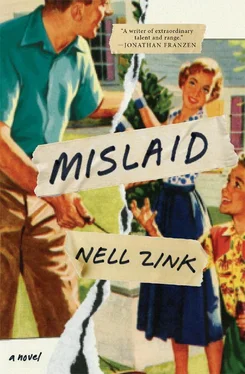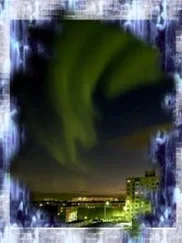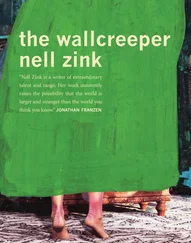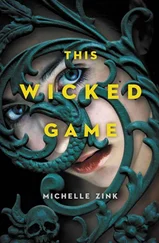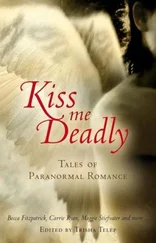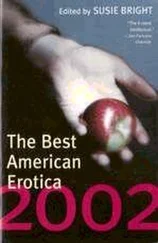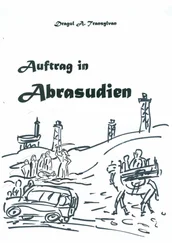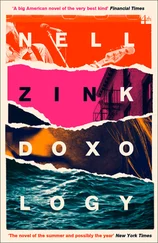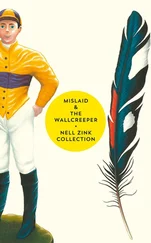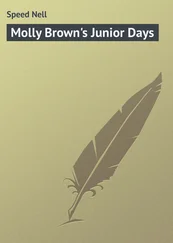They didn’t feel any older afterward. Just cooler. Not cool like an imprisoned gangster condemned to shank a dartboard five hundred times a day, but cool like rich, free young geniuses, eyes open to all that is human.
They tipped the waitress twenty dollars and hailed a cab back to the Waldorf. The next morning, they told the boy’s parents exactly where they had been and what they had done. They were met with open delight. It turned out parents don’t mind if you seek and cling to the dark underbelly of the naked city, as long as you do it in a well-lit, public place, high on coffee and testosterone.
The boys were turned loose the next day, Saturday, to explore the Village on their own. They had proved their trustworthiness. They came to dinner at a steak house in midtown with a bag of records and only very slightly dilated pupils. That evening they were allowed to leave yet again, to attend a folk music concert, trailed by praise for their youthful energy. They walked deep into Alphabet City, where no cab would take them, and slam-danced to a girl band playing in half-slips pulled up over their tits and no underwear, surrounded by junkies. The parents complimented each other on the positive effect of the steadying hand of Byrd Fleming.
But that was before the trip to Savannah. Who cares, it was worth it, and Byrd knew he would always be welcome at the Gothic revival castle on Lake Shore Drive, once the parents were dead.
The second pigeonhole where he didn’t quite fit was that of the romantic egoist — that figure from This Side of Paradise or A Portrait of the Artist as a Young Man who takes himself seriously but doesn’t yet know why. Who takes not knowing as a first symptom of seriousness and wears its ignorance accordingly — right side out. Such young men are commonly mama’s boys and lazy as sin. Byrd worked hard on trig and calculus, even though he was sure they had nothing to do with him. He read William Styron novels in secret, but for school he wrote precise prose, as dry as he could make it.
A teacher once asked him about his mother, folding his hands like a guidance counselor. There were stories. Byrd replied, “My mother was a God-fearing Christian woman like my father.” It sounded like a joke. It was in fact the quintessence of how he explained her to himself. He couldn’t imagine anyone staying with his father for more than five days, and she had stayed for ten years. He distinctly recalled telling her to leave and save herself, an act of supreme self-sacrifice on his part. He never missed her, not consciously.
In his more roving thoughts, not distilled to their quintessence, he believed she was a worthless cunt. Because what kind of monster leaves her little son and never even sends a postcard?
Yet he didn’t remember her being any kind of monster. Just crazy and busy and embarrassing. All his friends’ mothers looked like J. Press catalog models. They would lounge against their cars, waiting for their sons on Sundays, with clever clothes on, sporty garments like baseball jackets and anoraks reconceived as pale silk leisurewear. Their legs were stunning, much better than the legs of the girls who showed up at mixers, cylinders scarred by battles with field hockey sticks and all-you-can-eat doughnuts. His mother hadn’t even looked like a woman. She was a boy in a rugby shirt.
And his sister? A wraith. A taboo subject, indistinct and unthinkable. None of his friends knew she had existed.
Lee felt played out as a poet. Utterly spent. Increasingly, he relied on methods he had once tolerated only in houseguests — cut-ups, free association, automatic writing. After he published a found poem culled from a magazine ad and learned it had been licensed from the estate of Elizabeth Bishop, he gave up and turned to criticism.
Criticism carried social rewards of its own. For one, you can rave about Boris Vian or Viktor Shklovsky in essay after essay without running the risk that either one of them is going to turn up on your doorstep wanting to swim in your already nearly nonexistent lake or taste a genuine Virginia ham biscuit, which involves going somewhere to pick out a ham, soaking it for two days, and baking it for a day after that, so that you’re stuck with Boris or Viktor for four days, moping around the yard frowning at the mud and slapping mosquitoes, before you even addict him to your food.
Anyone still living who took the trouble to drive all the way to Stillwater was generally there for the duration — five days minimum — and visitors increasingly brought along magazine-inspired ideas of Southern living. Particularly if they were out as queens and took pride in reacting to every low flagstone in the front walk like a cat being asked to swim a river. They dressed in pale and delicate fabrics like men from a mythological filmic era before the invention of dirt. They expected Lee to provide them with croissants and two fresh towels every day, as if he were running a resort. They expected salad with quixotic greens like watercress and arugula and compared pasta to Treblinka. He stopped inviting them.
Solitude, however, was boring. Before long Lee got the idea of cultivating writers who were not poets. Fiction was still too close to poetry for his taste, so he focused on literary journalists. Living with the Hells Angels, digging up Neanderthals in Armenia — he didn’t care as long as they wrote it up with some smidgen of formal innovation adequate to justify charging their travel expenses to the college. The writer-adventurers would speak to the girls at length in podium discussions open to the public. When the event was over they would switch sides of the podium table and keep talking. When the crowd was down to four or five of the most determined students, they would retire to the new campus center and continue talking of the girls’ hopes and dreams for their art until late at night. They would drive back to his place at two in the morning in their rental cars, their balls deep blue, laden with lurid confessional manuscripts.
For a couple of years the college was willing to indulge Lee’s interest in writer-adventurers by bankrolling nonfiction residencies to anchor a “journalism” track in the English department. Four semesters, four miserable men. They all ended up sleeping with the same bartender at the same roadhouse (no blue laws anymore) out on the state highway. The entertainment value for Lee was minimal, and he let “journalism” lapse.
Lee had his theories as to why writers never had any fun at the college. Theory A was that upper-middle-class girls no longer thought of older men as male. They got along so well with their relaxed, friendly dads that relaxed, friendly guys twenty-two and over immediately reminded them of Dad. Theory B was that Stillwater was still wall-to-wall dykes. Lee felt he had no way of knowing. When he was coming up, a girl in cat’s-eye glasses wearing a red bra and baggy boxer shorts over fishnet stockings was — he couldn’t think of a word for it — not even a slut, because why would a slut wear glasses or baggy shorts? A girl dressed that way in 1958 might have been going to a Mardi Gras party at library school, but only if it was down the hall. These girls confronted him in class every day. Its being a girls’ college that rejected men like stray kidneys, there were no overeager, pawing gazes from boys to put the brakes on them. Lee’s eyes never wandered below their faces. He feared his indifference egged them on.
He couldn’t tell what went through their heads. Since the rise of fashion, which he dated to the day the campus got cable TV, there had been a disconnect between the way people dressed and their backgrounds and opinions. The college’s Russ Meyer film festival was organized by a little-red-book-carrying Maoist. Tri-Delts in leotards picketed the campus health center to protest condoms. Girls in fair-isle sweaters and pearls would engage him in discussions of Michael Harrington. The Christian student association sponsored dances, of all things, and its most popular DJ, a Cure fan in flowing hippie skirts, founded a short-lived campus Republicans chapter, disbanded when she transferred to UC Santa Cruz to study the history of consciousness. There was no rhyme or reason to it anymore. You couldn’t trust the signals. Rugby shirts, once the trademark of Stillwater’s hardest-bitten bulldaggers, were now an option for anyone, any time. Still resembling gunnysacks made from signal flags, but considered sexy status symbols by girls who brought them back from road trips as souvenirs of one-night stands.
Читать дальше
Конец ознакомительного отрывка
Купить книгу
